As we start counting down for the release, we are collecting submissions for the community wallpapers package (xubuntu-community-wallpapers) in Xubuntu 16.04 LTS.
How to participate?
For a chance to win, send your submission at http://contest.xubuntu.org/.
Important dates
- Start of submissions: Immediately
- Submission deadline: April 1
- Announcement of selections: Week 14 (some time between April 4 and April 10)
All dates are in UTC.
Contest terms
All submissions must adhere to the Terms and Guidelines, including specifics about subject matter, image resolution and attribution.
After the submission deadline, the Xubuntu team picks 6 winners from all submissions which will get included on the Xubuntu ISO and available for all Xubuntu users.
Any questions?
Please join #xubuntu-devel on Freenode for assistance or email the Xubuntu developer mailing list if you have any problems with your submission.
The Xubuntu team is pleased to announce the immediate release of Xubuntu 16.04 LTS Beta 1. This is the first beta towards the final release in April.
The first beta release also marks the end of the period to land new features in the form of Ubuntu Feature Freeze. This means any new updates to packages should be bug fixes only, the Xubuntu team is committed to fixing as many of the bugs as possible before the final release.
Please note! No upgrade testing was undertaken during this milestone. There are issues currently when upgrading to Xenial Xerus. This release is not suitable for upgrading.
The Beta 1 release is available for download by torrents and direct downloads from http://cdimages.ubuntu.com/xubuntu/releases/xenial/beta-1/
Changes for 16.04
- Xubuntu 16.04 will not have a default media manager installed; this is already reflected in the Beta 1 images.
Known Issues
In addition to the above media manager change not being reflected in the documentation, several places still refer to 15.10 instead of 16.04, including the installer slideshow. The affected packages will be updated for Beta 2.
Some issues during testing of image were found, in addition some bugs related to Xubuntu have been noted during the development cycle. Full detail of all of these can be found in the release notes at https://wiki.ubuntu.com/XenialXerus/Beta1/Xubuntu
The Xubuntu team hears stories about how it is used in organizations all over the world. In this “Xubuntu at..” series of interviews, we seek to interview organizations who wish to share their stories. If your organization is using Xubuntu and you want to share what you’re doing with us please contact Elizabeth K. Joseph at lyz@ubuntu.com to discuss details about your organization.
Recently Charles McColm and Paul Nijjar took time to write to us about their work at The Working Centre’s Computer Recycling Project in Kitchener, Ontario, Canada where they’re using Xubuntu. So without further ado, here’s what they are working on, in their own words.
Please tell us a bit about yourself, The Working Centre and your Computer Recycling Project
The Working Centre was originally established back in the early 1980s as a response to growing unemployment and poverty in downtown Kitchener, Ontario, Canada. Joe and Stephanie Mancini saw the potential for building a community around responding to unemployment and poverty through creative and engaging action. Different projects have rose out of this vision over the years divided into six areas; the Job Search Resource Centre, St. John’s Kitchen, Community Tools, Access to Technology, Affordable Supportive Housing and the Waterloo School for Community Development.
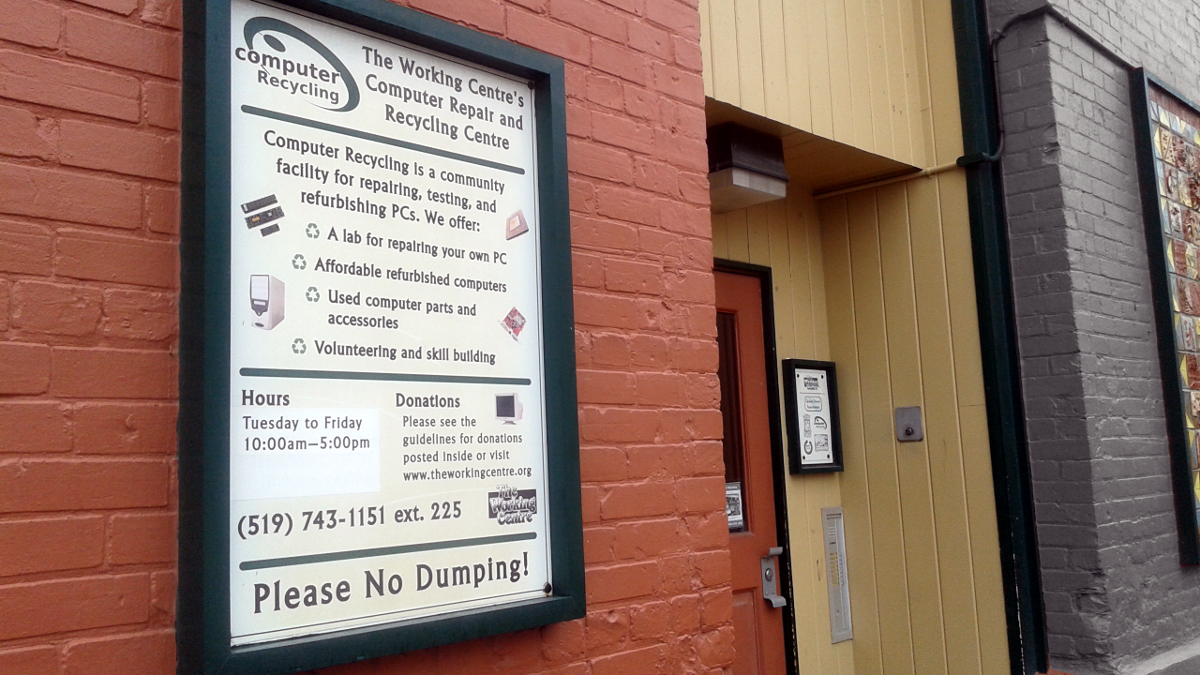
The Computer Recycling Project started as the result of creative thinking by an individual who had some serious obstacles to employment. The person couldn’t work, but wanted to help others find work. So in the late 1980s the individual put together a few computers for people to create resumes on. Other people became interested in helping out and the Computer Recycling Project was born.
Computer Recycling and the other projects have the following qualities:
- They take donated or low cost materials, in our case computers and computer parts.
- The apply volunteer labour to convert (repair/test) these materials into valuable goods. These goods are offered to the community at accessible prices (our computers generally range from $30 to $140)
- Projects provide opportunities for people unable to work to contribute back to the community and help those looking to find jobs and upgrade their skills.
- Projects also focus on creating open, friendly, and inclusive environments where everyone can contribute.
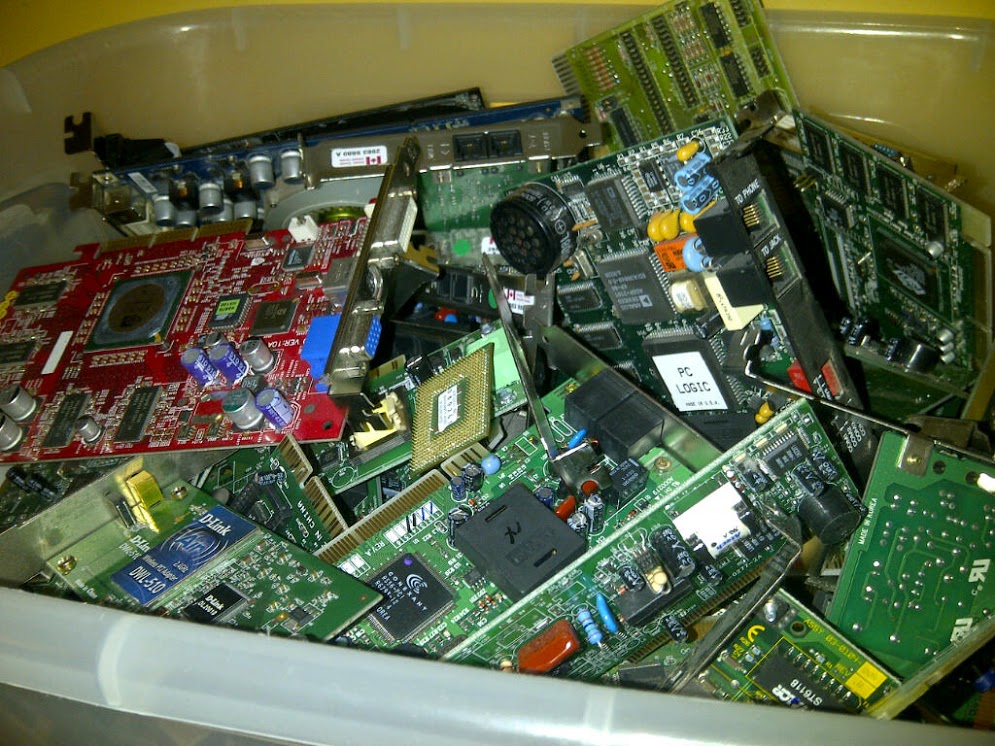
What influenced your decision to use Open Source software in your organization?
Computer Recycling didn’t always use Xubuntu and wasn’t originally a full time venture. Linux adoption started slowly. In 2001, thanks in part to our local Linux User Group, several volunteers (Paul Nijjar, Charles McColm and Daniel Allen) started working on a custom Linux distribution called Working Centre Linux Project (WCLP). At the time Computer Recycling had no legal options for distributing computers with Windows, so free and open source software was very appealing.
A couple of years later the project became a Microsoft Authorized Refurbisher. However restrictions on licensing (computers had to have a pre-existing Certificate of Authenticity and could only be sold to qualified low-income individuals) prevented us from installing Windows on all computers.
Linux didn’t have these kinds of restrictions so we continued to use it on a large number of computers. Over the years the Microsoft program changed and we became a Microsoft Registered Refurbisher (MRR). Microsoft dropped the “must have a pre-existing COA” on the computers we refurbish for low income individuals and provided another (more expensive) license for commercial sales, but we’ve continued to install both Windows and Linux. Last month Xubuntu Linux machines accounted for 63% of the computers we sold (due in part to the fact that we only sell Notebooks/Laptops with Xubuntu).
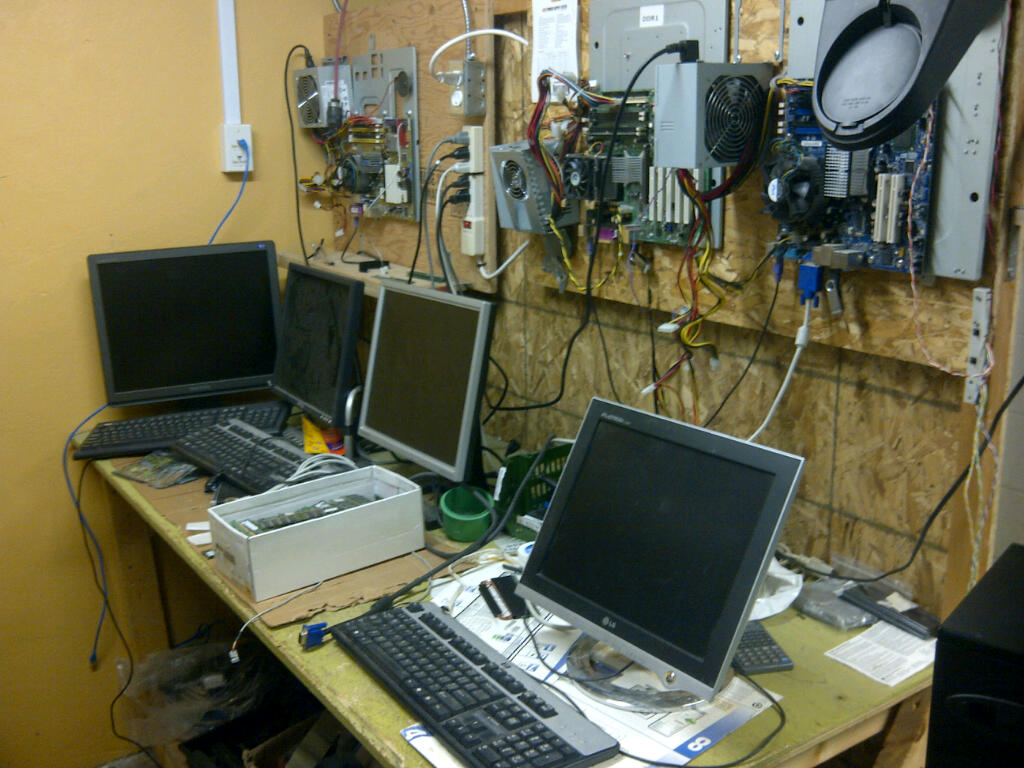
Price was definitely a factor for us in preferring open source software over other options. Most of the people we work with don’t have a lot of money, so accessing a low-cost ecosystem of reliable software was important. Each closed source license (Windows/Office) we buy costs the project money and this in turn translates into cost we have to pass on to the person buying a computer. We do a fair amount of quality assurance on systems, but if a system suffers some catastrophic failure (as we’ve had with a certain line of systems) we end up spending money on 4 licenses (2 for the original Windows/Office system and 2 for the replacement system). With Xubuntu we can often just pull the hard drive, put it in a different system and it’ll “just work” or need a little bit of work to get going. With Xubuntu the only cost to us is the effort we put into refurbishing the hardware.
Malware and viruses have also driven up the demand for Xubuntu systems. In the past several years we’ve seen many more people adopting Xubuntu because they’re fed up with how easy Windows systems get infected. Although centralized reliable software repositories are starting to become more popular in the proprietary software world, for years the availability and trustability of APT repositories was a big selling point.
What made you select Xubuntu for your deployments?
We mentioned earlier that Computer Recycling didn’t originally use Xubuntu. Instead, we started with The Working Centre Linux Project, our mix of IceWM on Debian designed to look like Windows 9x. Maintaining WCLP proved to be challenging because all 3 of the volunteers had separate jobs and a lot of other projects were starting to appear that made putting an attractive Linux desktop on donated hardware a lot easier. One of those projects was the Ubuntu project.
For a few years Computer Recycling adopted Ubuntu as its Linux OS of choice… right up until Ubuntu 10.10 (Unity) arrived on the scene. At this point we started looking at alternatives and we chose Xubuntu because it doesn’t make heavy demands of video processing or RAM. We also liked the fact that it had an interface that is relatively familiar to Windows users. We considered other desktop environments like LXDE, but small things matter and ease of use features like automounting USB keys tipped our choice in favour of Xubuntu.
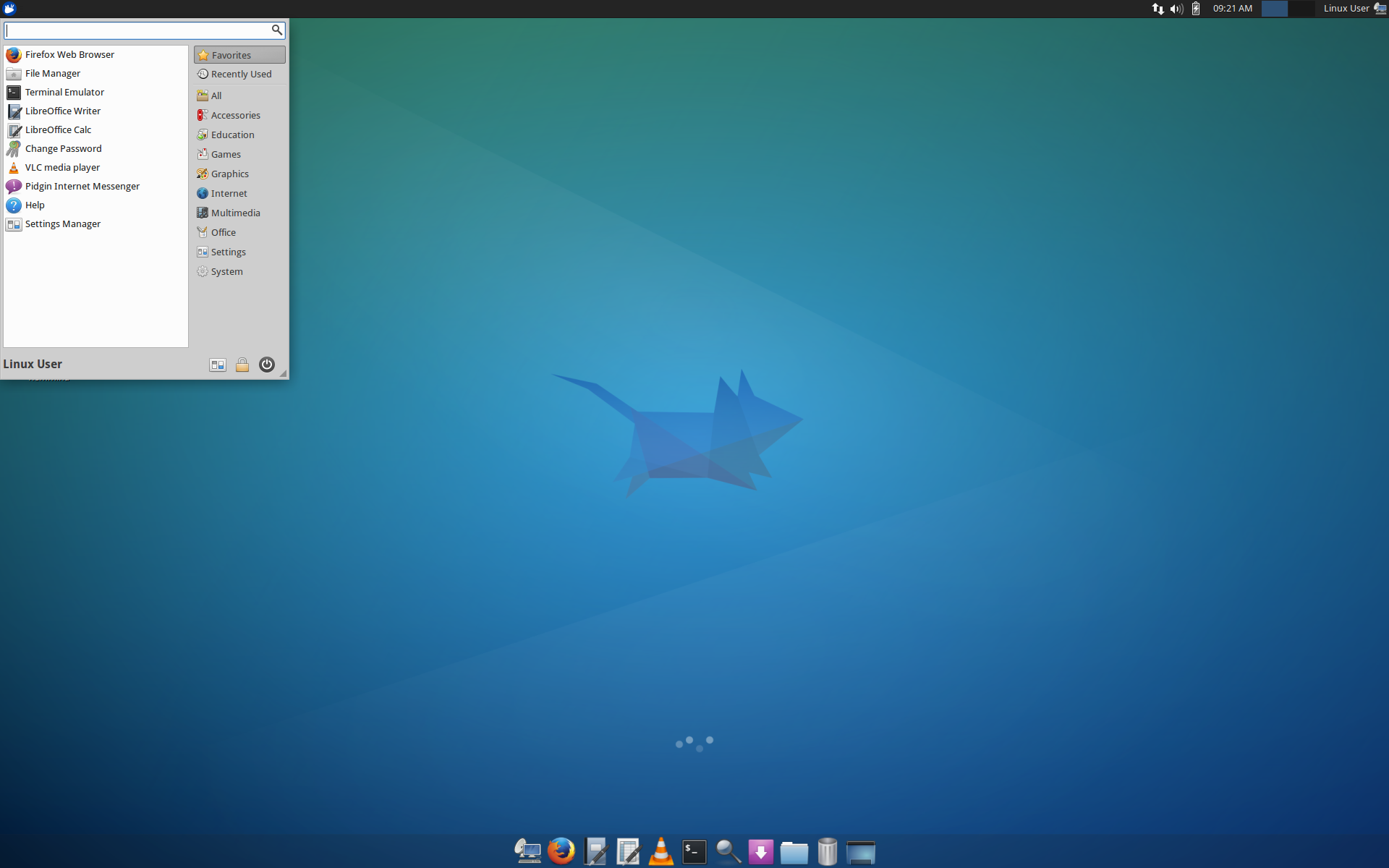
Can you tell us a bit about your Xubuntu setup?
Paul has done all the work on our current form of installation: preseed files and some customization scripts. Computers are network booted and depending on the system we’ll install either a 32 or 64 bit version of Xubuntu with the following customizations:
- Proprietary Flash Player
- We show the bottom panel with an icon tray and don’t auto hide it
- We use a customized version of the Whisker menu to show particular items
- We include LibreOffice instead of depending on Abiword and Gnumeric
- We include some VNC remote connection scripts so our volunteers can securely (and with the consent of the person at the other end) connect and provide remote help
- We’ve set VLC as the default media player instead of Parole
We are very grateful for the existence of high-quality free and open source software. In addition to using it for desktop and laptop computers, we use it for information and testing (using a Debian-Live infrastructure) and for several in-house servers. About 8 years ago we hired a programmer looking for work to turn an open source eCommerce project into the point of sale software we still use today. The flexibility of open source was really important and has made a big difference when we needed to adjust to changes (merging of GST and PST in Canada to HST for example). Closed source solutions were carefully considered, but ultimately we decided to go open source because we knew we could adapt it to our needs without depending on a vendor.
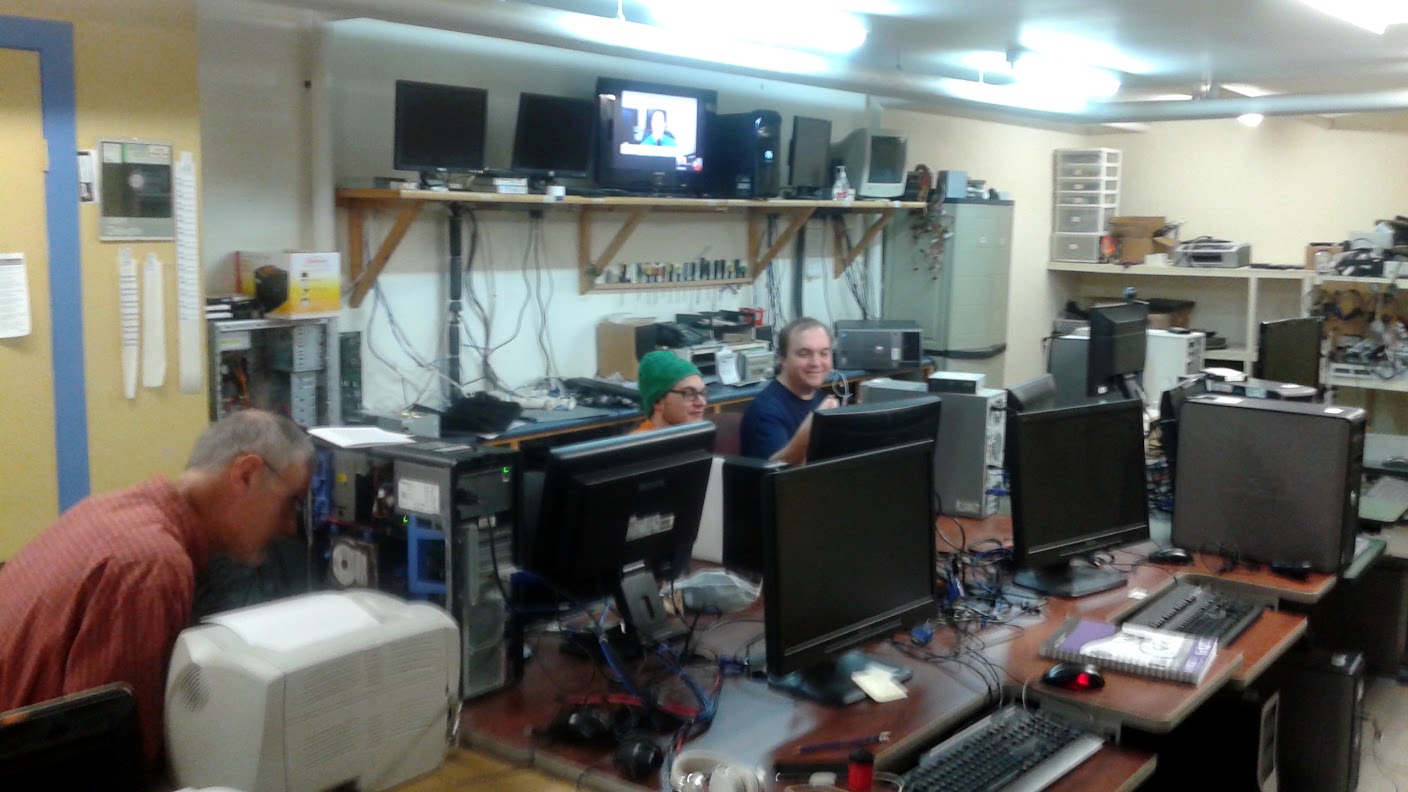
Is there anything else you wish to share with us about your organization or how you use Xubuntu?
Paul and I are also grateful for the opportunities open source afforded us. In 2005 The Working Centre hired me (Charles) to advance the Computer Recycling Project into a more regular venture. This opportunity wouldn’t have come if I hadn’t first worked with Paul as a volunteer on the Working Centre Linux Project and worked on several other open source projects (a PHP/MySQL inventory system and a SAMBA server). Around 2007 The Working Centre hired Paul to help with system administration and general IT. Since then he’s spearheaded many FLOSS projects at The Working Centre. Daniel Allen, who also worked with us on WCLP, currently works as a Software Specialist for the Science department at the University of Waterloo.
People can find out more about The Working Centre’s Computer Recycling Project by visiting the web site at http://www.theworkingcentre.org/cr/
The Xubuntu team hears stories about how it is used in organizations all over the world. In this “Xubuntu at..” series of interviews, we seek to interview organizations who wish to share their stories. If your organization is using Xubuntu and you want to share what you’re doing with us please contact Elizabeth K. Joseph at lyz@ubuntu.com to discuss details about your organization.
Several months ago we learned from Evelyn Lopez at FreeGeek Chicago that they’d been deploying Xubuntu on computers they sell through their efforts to recycle used computers and parts to provide functional computers, education, internet access and job skills training to those who want them. Evelyn took some time out of her schedule to talk to us about the work that FreeGeek Chicago does and some of the tools they use around Xubuntu and flavors being used.
Can you tell us a bit about your role at FreeGeek Chicago and work that FreeGeek Chicago does?
I’m currently the Communications Coordinator at FreeGeek Chicago. My job is to manage FreeGeek’s social networks, create content and occasionally serve as photographer for their events and volunteer days. Our organization, FreeGeek Chicago has a mission to reduce e-waste and to properly recycle computer electronics. The general public and our volunteers donate their old electronics with the intention of recycle and/or re-purpose. Our volunteers seek, test and build new computers out of the working parts donated which in turn are sold to customers with the Linux system at a reduced price. Through volunteering our volunteers learn current computer building skills and open source software.
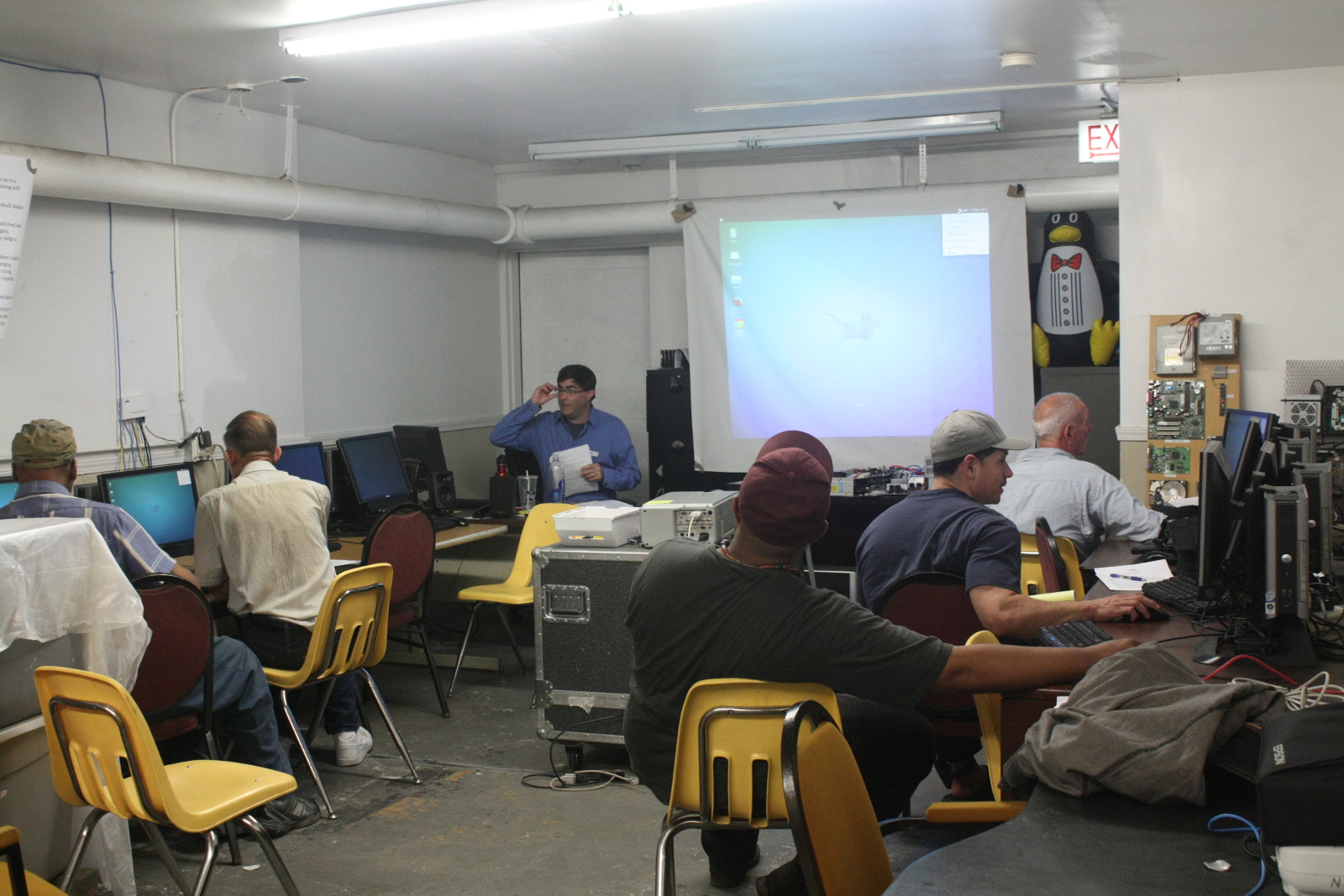
What influenced your decision to use Open Source Software at FreeGeek Chicago?
In order to use the FreeGeek name we must adhere by certain articles, one of them being using exclusively open source software. We as an organization firmly believe in the use of open source software as a main alternative to the high prices of proprietary software. Also, we understand the positive aspects of giving the user access to modify [the software] as it can lead to a better function and understanding of the software.
What made you select Xubuntu for your deployments?
At the time we chose Xubuntu for a variety of reasons. First of all we believed that this platform best suited the needs of our organization. We also thought that it was the most compatible with the computers that were being donated to us. Lastly, we believed that it was an easier platform to teach our volunteers. At this time we currently use two different systems distros (Ubuntu and Kubuntu).
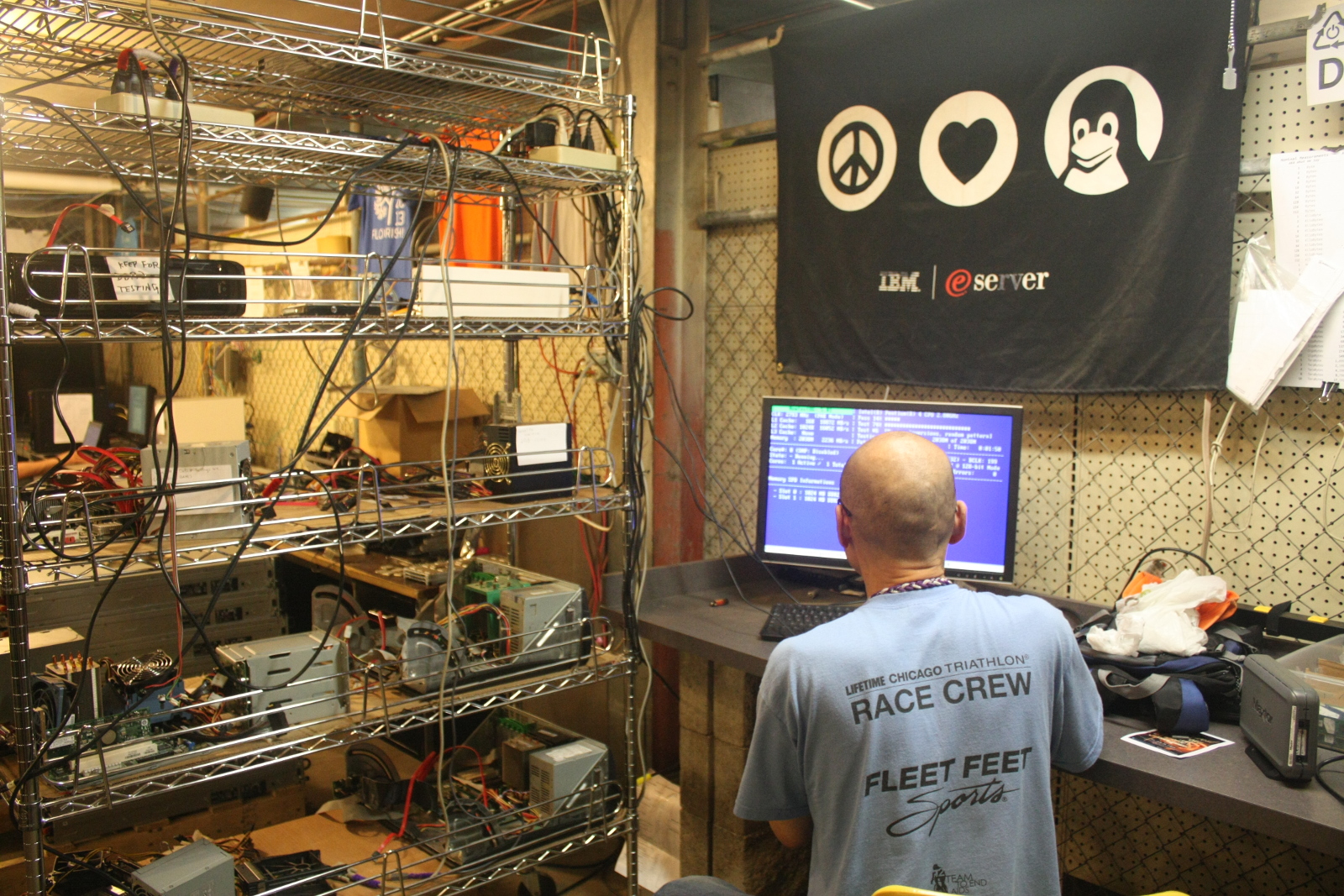
Can you tell us a bit about your Xubuntu setup?
We try to keep it as simple as we can since our computers will be going out to the sales floor or to donation. Currently, we install LibreOffice, Krita, Inkscape, VLC Player, Firefox, Chromium, GIMP among others. Installs are done by our volunteers as part of their hands-on learning education. They load the operating system from our network and use the command line to install the rest of the programs. After it is installed our Q&A team certifies the installation and the computer goes to our sales floor.
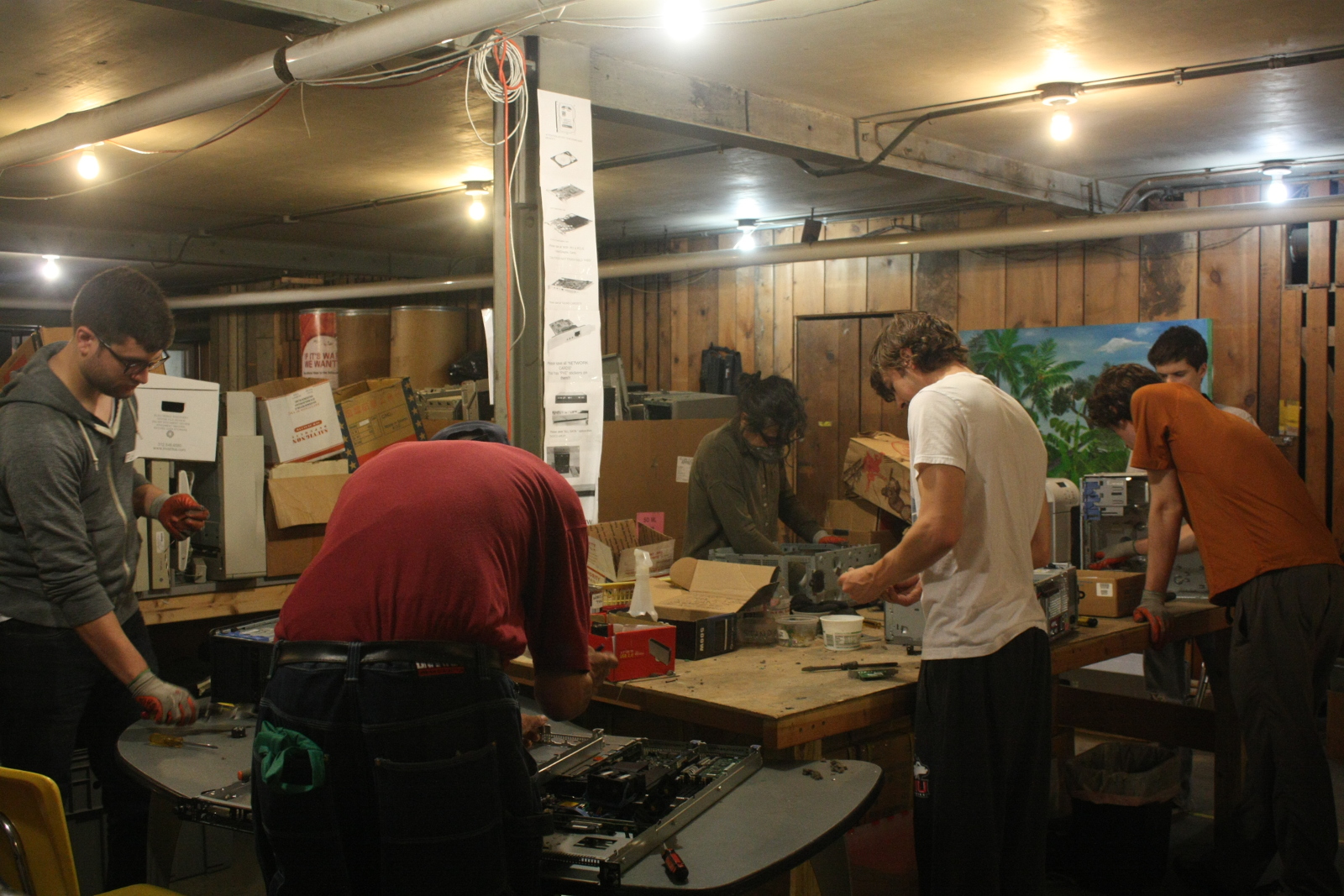
Is there anything else you wish to share with us about FreeGeek Chicago?
FreeGeek Chicago is a community organization that refurbishes used computers and parts to provide functional computers to volunteers and the general public. We provide education in practical computing, hands-on job skills training, and an outlet for community service, recycle non-reusable materials in an ethical, safe, and environmentally responsible manner.
The Xubuntu documentation, shipped with every release of Xubuntu, is in fact a package that can be built locally, on your computer.
By default, Xubuntu does not come with the tools required to build the documentation package, so there is the need to prepare your system to be able to do it, by installing the required prerequisite packages. To do this, run the following command:
sudo apt-get build-dep xubuntu-docs
Additionally, if you are running a release earlier than 15.10, you will need to install the package fop manually, because it’s not yet a dependency of the package in your release. To do this, simply run:
sudo apt-get install fop
Once that’s done, all you have to do is to get the latest main branch and build the package. Again in a terminal window, run the following commands, one at a time:
bzr branch lp:xubuntu-docscd xubuntu-docsmake (running this command will take some time as it builds both HTML and PDF versions of the documentation in various languages) exo-open --launch WebBrowser build/index.html
Now that you have the source on your system, you have the ability to edit it and ultimately, suggest improvements to the documentation. If you have any doubts about how you can contribute, just have a read on how you can assist with the Xubuntu documentation, here.








